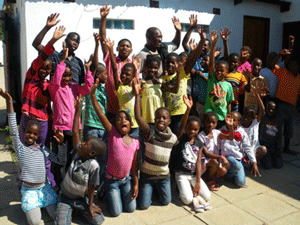Teen pregnancy remains a significant challenge in many communities, particularly in regions like Mpumalanga, where poverty, lack of education, and social pressures contribute to high rates of early motherhood. Preventing teen pregnancy is crucial not only for the well-being of young girls but also for the health and prosperity of the entire community. By empowering youth with the right knowledge, resources, and support, we can help them make informed decisions about their futures. This blog post explores key strategies for preventing teen pregnancy and highlights the importance of a comprehensive approach.
1. Comprehensive Sex Education
One of the most effective ways to prevent teen pregnancy is through comprehensive sex education. This education goes beyond the basics of biology to include discussions on consent, healthy relationships, and the emotional and social aspects of sexuality. Comprehensive sex education helps young people understand the consequences of sexual activity and equips them with the knowledge they need to make informed decisions.
In many communities, cultural or religious beliefs can make discussions about sex challenging. However, it is crucial to provide young people with accurate and age-appropriate information. Programs like those offered by Mamkhulu.org aim to bridge this gap by providing education in a way that is respectful of cultural norms while still delivering essential information.
2. Access to Contraception
Access to contraception is another vital component of preventing teen pregnancy. Even with the best education, young people may still engage in sexual activity, and having access to contraception can prevent unintended pregnancies. Ensuring that teens know where and how to access contraceptives is crucial, as is educating them on the correct use of these methods.
Healthcare providers, schools, and community organizations can play a significant role in providing access to contraception and counseling. Confidentiality is key in these situations, as teens may be reluctant to seek out contraception if they fear judgment or repercussions from their families or communities.
3. Empowering Girls and Young Women
Empowerment is at the heart of preventing teen pregnancy. When girls and young women feel valued and have a sense of control over their futures, they are more likely to delay pregnancy until they are ready. Empowerment comes from various sources—education, mentorship, life skills training, and economic opportunities.
Programs that focus on building self-esteem and leadership skills can help girls develop a positive self-image and the confidence to say no to unwanted sexual advances. Encouraging girls to set goals and providing them with the tools to achieve those goals can also reduce the likelihood of early pregnancy. Mamkhulu.org’s work with young women in Mpumalanga, for instance, includes offering skills training and support that help them envision a future where they can pursue education and careers before starting a family.
4. Engaging Boys and Young Men
Preventing teen pregnancy is not just about educating girls; boys and young men also need to be part of the conversation. Engaging young men in discussions about respect, responsibility, and healthy relationships is essential. They need to understand the consequences of unprotected sex and their role in preventing pregnancy.
Programs that include boys and young men in sex education and life skills training can help break down harmful gender stereotypes and promote positive behaviors. By fostering a sense of responsibility and mutual respect, these programs can contribute to reducing the rates of teen pregnancy.
5. Providing Supportive Environments
Creating a supportive environment for young people is crucial in preventing teen pregnancy. This means providing safe spaces where they can ask questions, seek advice, and receive the support they need. Schools, community centers, and organizations like Mamkhulu.org can offer these environments, where youth feel heard and valued.
Additionally, addressing the broader social and economic factors that contribute to teen pregnancy is important. Reducing poverty, increasing access to education, and promoting gender equality are all long-term strategies that can help create a context where teen pregnancy is less likely to occur.
Conclusion
Preventing teen pregnancy requires a comprehensive approach that includes education, access to contraception, empowerment, and support for both girls and boys. By working together—parents, educators, healthcare providers, and community organizations—we can create environments where young people can make informed choices about their futures. Programs like those offered by Mamkhulu.org play a vital role in this effort, providing the tools and support needed to empower the youth of Mpumalanga to build healthier, more prosperous lives.


